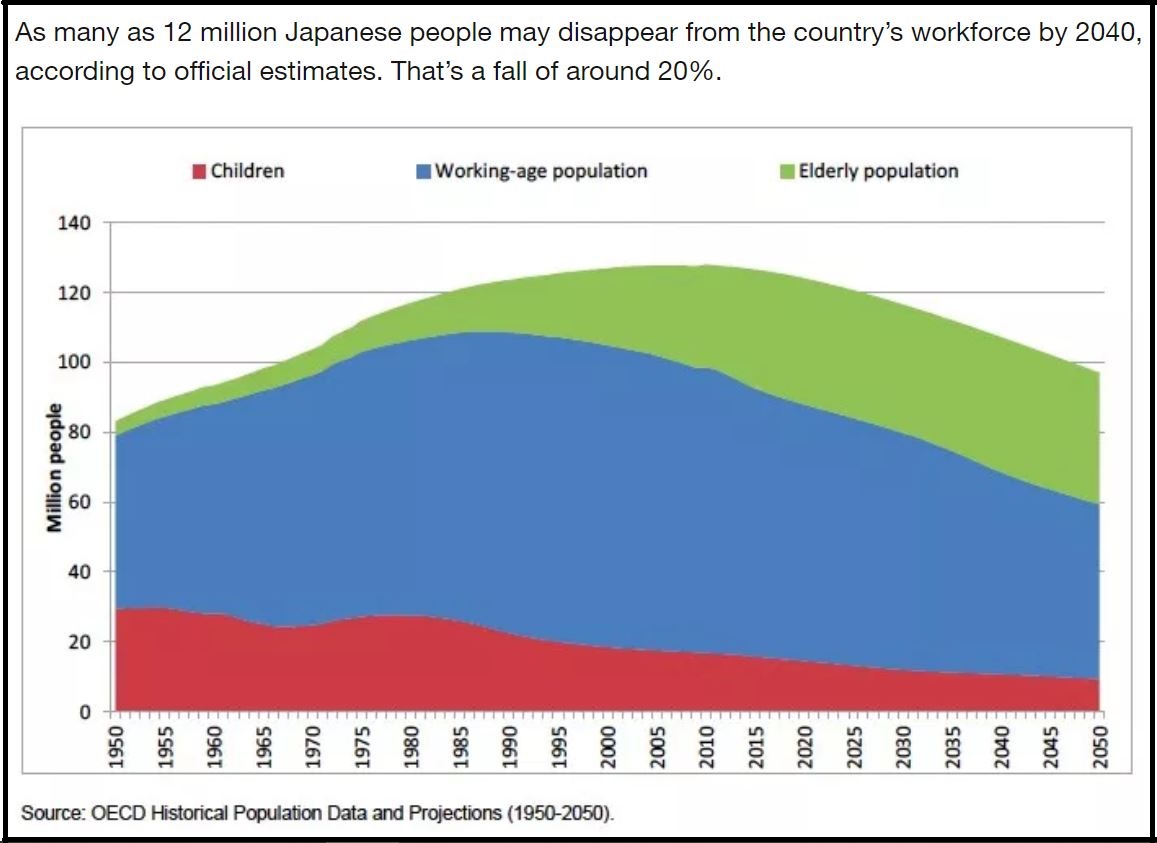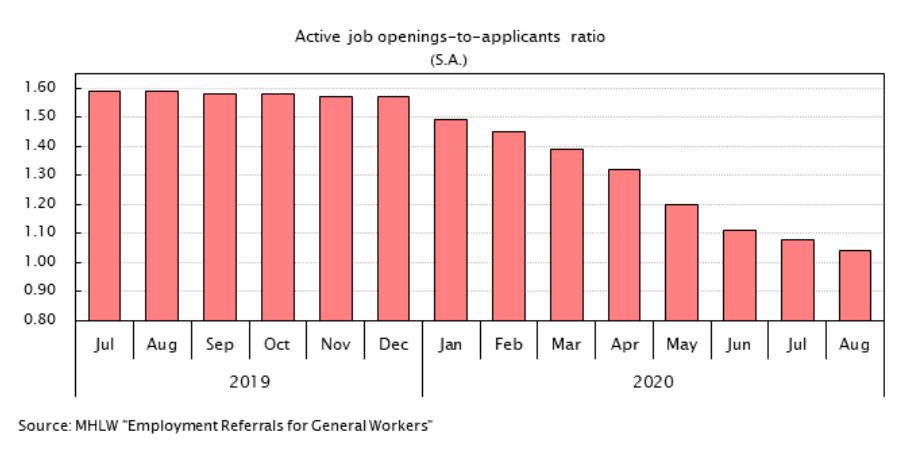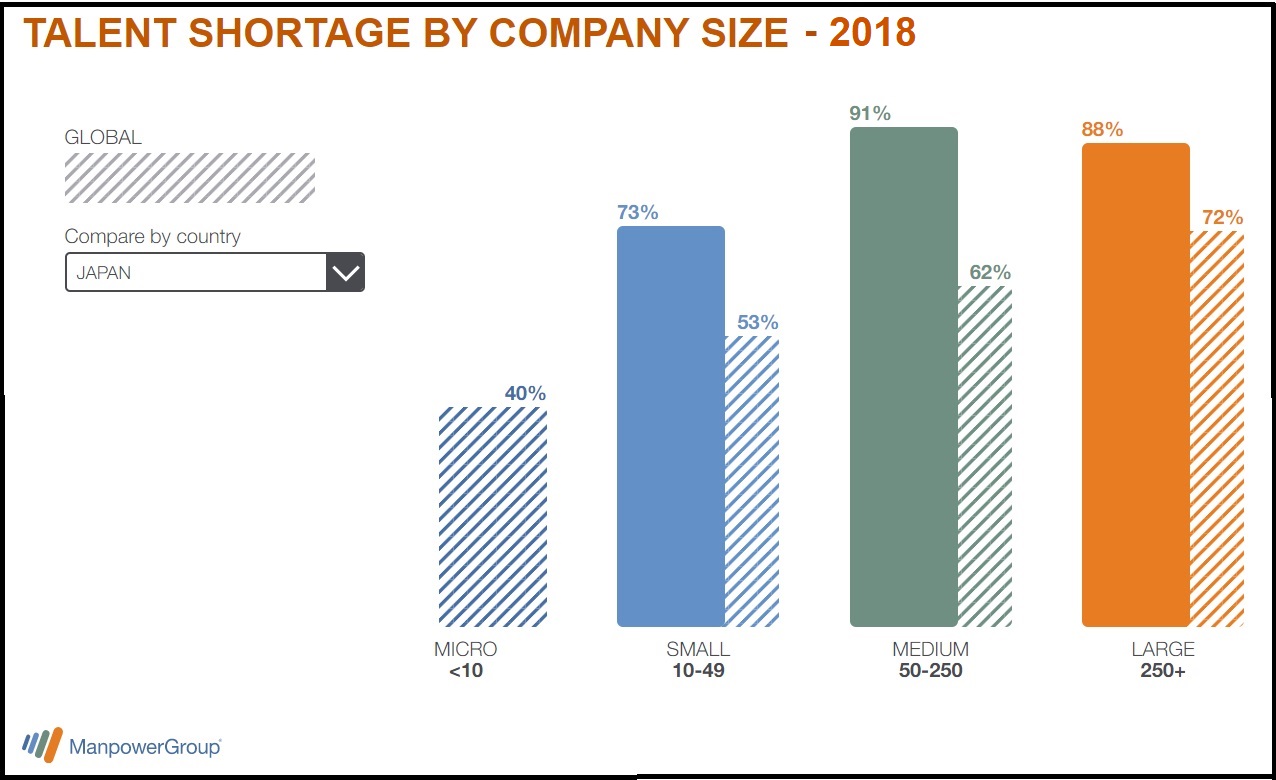Hiring Employees in Japan: The Challenges and Tips

Challenges of Hiring in Japan
Are you thinking of hiring in Japan? Due to its particular labor force demographics and work cultural aspects, recruiting employees in Japan presents unique challenges that you should be aware of.
The article about writing job descriptions gives examples of Microsoft and Amazon’s job advertisements in the U.S. and Japan, which are good examples of the recruitment situation in Japan.
Before we talk about the hiring challenges in Japan, the good news is that because of its societal values and structures, Japan has a large and highly educated workforce, so getting the right talent should be easier than in many other countries. However, recruiting in Japan still tends to be challenging, more so for bilingual talent, because of the following reasons:
- Low fertility rates and the aging population
- Traditional lifetime employment practices in large corporations
- Risk aversion
- Lack of company branding for new companies
- Less than 10% of the population with good English skills
Labor Shortage – Low Fertility Rate and Aging Population
Japan has the world’s highest population of elderly citizens, with 28.90% of the population over 65 years old and a fertility rate of 1.41, as compared to the world’s average of 2.4.
On the one hand, the population has been declining since 2010, with the growth rate in 2020 at -0.209%; on the other hand, Japan does not appear among the top immigration-friendly countries. The picture for the foreseeable future does not look very bright with the following estimates:

Traditional Lifetime-employment practices
Though lifetime employment practices are fast disappearing from Japan, many large companies and their employees still follow those practices. It may not be literally true in many cases, but you will often find many people working for these large organizations for a very long time.
Risk aversion
Japanese people are generally considered to be risk-averse. Risk aversion is deeply rooted in Japanese culture, and one of the main reasons has been the country’s frequent natural disasters. These cultural trends are also reflected in Japan’s working culture.
This risk aversion is credited with much of the famous Japanese quality, but on the other hand, a change of employer always creates a shadow of possible risks. This makes it challenging to attract candidates to apply for open positions.
Another challenge of risk aversion, which can repel a job seeker, comes into the picture if the job description asks for too strong skill sets and shows that the job can be too challenging.
Unlike many foreigners who may claim to be more than they are, the Japanese are generally the opposite – they try to undersell themselves. This issue may also affect the interview screening if the interviewer is unaware of this point. It is essential to make the job description inviting instead of repelling while hiring in Japan.
Company Branding
Japanese people are known for their love for brands. If your company is new to Japan and does not have good local branding, attracting job seekers may become more challenging. However, branding is not only limited to the employer’s brand value; it also extends to the position in question. Presenting the role to prospective employees to attract them is essential.
Bilingual Talent
It is estimated that less than 10% Japanese population has good English-speaking skills. It makes filling open job roles further challenging if the employer is looking to hire bilingual candidates.
Labor Shortage in Japan
Nippon.com, quoting a survey by the Japan Chamber of Commerce and Industry and the Tokyo Chamber of Commerce and Industry, reported that 52.1% of all surveyed companies in Japan expected the labor shortage to worsen. The report stated that the percentage was even higher, at 62.4%, among companies already facing a labor shortage, against Japan’s population decline and migration to larger urban areas.
Japan has one of the lowest job-to-applicant ratios, and this situation is not improving.

In August 2020, the job openings-to-applicants ratios were as follows:
Active job openings-to-applicants ratios in Japan:
- Excluding new school graduates and including part-timers: 1.04
- Excluding new graduates and part-timers: 0.99
New job openings-to-applicants ratio in Japan:
- Active job openings-to-applicants ratios: 1.82
- Excluding new school graduates and including part-timers: 1.68
This means that if an employer is looking to fill an active full-time job opening and needs an experienced employee, they will have just 99 candidates for 100 openings. That is, not even one candidate per job. These ratios do not take into account the bilingual requirements. The ratio gets much worse if you are looking to hire a candidate with good Japanese and English skills. You may have your positions open not just for weeks but months altogether.
Japan – One of the Most Difficult Countries to Hire In
In the 2018 Manpower Global Talent Shortage Survey, out of 43 countries surveyed, Japan was among the most challenging countries to hire. The difficulty of hiring in Japan seems to rise in proportion to the company’s size, with mid-sized companies facing the most significant talent crunches. Still, even 73% of small companies reported shortages with workforces ranging from 10 to 49 employees.

Image credit: Manpower Group
What can employers do to hire efficiently in Japan?
What does this mean for you as an employer looking to recruit skilled employees in Japan? Hiring employees in Japan isn’t the same as hiring in other countries, where you may be used to having 20 or more applicants for each position.
There are, on average, about 160 positions for every 100 people looking for jobs. This represents a 44-year high in the country and potentially gives you a concise list of applicants for each position you have open.
To increase your chances of finding the right people for your company in Japan, here are some tips to bear in mind:
Be flexible
With the statistics in mind, you already know that it can take a while before the ‘right’ applicant comes along who has all the qualifications, skills, and experience you are looking for.
However, if someone comes along who may not precisely fit your requirements, don’t be too hasty in rejecting them. For example, you may need someone with 10-12 years of experience, but why not give a chance to a bit less experienced candidate?
Age and years of experience don’t always matter; attitude and hunger to achieve matter. The opposite is true: if a more experienced candidate is open to accepting the role, why not accept that? Being more flexible and open-minded in your hiring increases your chances of finding the right person for your job.
Let Fluency in Language be a Secondary Criteria
Only a tiny percentage of the people in Japan can speak fluent English, including the professional workforce. English is a compulsory subject in Japanese schools.
However, many Japanese people still struggle with the language due mainly to a traditional emphasis on rote or textbook learning in the curriculum and a lack of focus on conversational skills. In the international English Proficiency Index test published in 2022 by the education company “Education First,” Japan ranked #80th among 111 countries, earning it a “low proficiency” ranking.
What does that mean for you as an employer? When hiring employees in Japan, we recommend that you don’t make English fluency a priority. Instead, focus on other abilities first, consider investing in English classes for your Japanese employees, and place fluent English speakers within a team to encourage learning. You’ll find that your employees’ English skills will usually improve considerably when they are placed in an environment where it is used every day – much like when anyone learns a new language.
Suppose being able to communicate in English is a crucial requirement for the role, but you cannot find the right candidate. Another option is to fill the position with a Japanese professional anyway and work with an interpreter or translator in your office.
Another point is that many Japanese people know English and can manage written communication, but they might be too shy to speak. With time, that hurdle would disappear if they needed to communicate to carry out their duties.
The opposite of the above is also true. There may be times when you have a very skilled candidate with the right attitude and aptitude who is not proficient in Japanese – why not consider such a candidate for hiring if they can manage to perform?
Branding of both the Company and of the Role Matter
A particular aspect of the Japanese mindset is that the company a professional works for needs to have a “good” reputation. Japanese people are proud of their country’s heritage and the Japanese brands that have conquered international markets. There are 45 Japanese companies on the Fortune Global 500 list alone, including Honda, Mitsubishi, Toyota, Softbank, and many others.
So, if you are a foreign, non-Japanese company recruiting in Japan, you may need to leverage your brand’s power overseas to convince job seekers to work for you. This means that the traditional interview question “Why should we hire you.” needs to be turned around to “How can I convince you that it would be good for you to come to work for us.”
Once your candidate decides to come on board with you, it is almost guaranteed that they will be very loyal and proud to represent your company. This is especially true for Japanese candidates.
As mentioned above, branding includes not only the company but also the role. You must think and plan how you present the job and its function to the prospective candidate.
Emphasize Benefits–Including Future Prospects
A well-qualified, skilled candidate can expect to receive multiple job offers during their search and will likely receive counter-offers from their existing company.
Loyalty to one’s employer is seen as a virtue in Japan, and your candidate may be experiencing conflicting emotions during their interview process with you. With this knowledge, what can you do? The first thing you can consider is to sweeten the deal and offer your preferred candidate an increase of at least 10% more than their present salary.
In Japan, changing jobs frequently is seen as a negative aspect of a resumé. For companies and employees, job-hopping is costly and undesirable.
For more information on this topic, see our article on Employee Attrition – How Can Companies Address The Job-Hopping Trend Among Employees? So, the applicant is also weighing the number of times they can change jobs without potentially negatively affecting their career.
To reassure your applicants and convince them to work for you, you can emphasize long-term career prospects and career paths with your company, with increasingly senior roles, salaries, and benefits.
Once you have identified the right candidate, you must move decisively and quickly with a competitive offer.
For many companies in Japan, the recruitment process can be long, with two to four interviews held over several weeks. If your company can move quickly and flexibly, you might successfully find the perfect candidate for your job. One final note: Japanese people do not really enjoy negotiating, so make sure you present your best offer from the start.
Hiring employees in Japan can be stressful, demanding, and very different from what you may be used to, especially if you are unfamiliar with Japanese recruitment practices. Keep the above tips in mind to make your hiring process smoother. If you would like assistance in hiring in Japan, we have over two decades of experience recruiting in Japan and APAC. Contact us here, and we will be happy to help.

Coming from an IT background of SAP consulting, IT Business development, and then running the country operations of an IT consulting multinational, Himanshu is co-founder and Managing Director of ReachExt K.K., and EmploymentJapan.com. He is also an Advisory Board Member of a Silicon Valley AI/IoT startup.